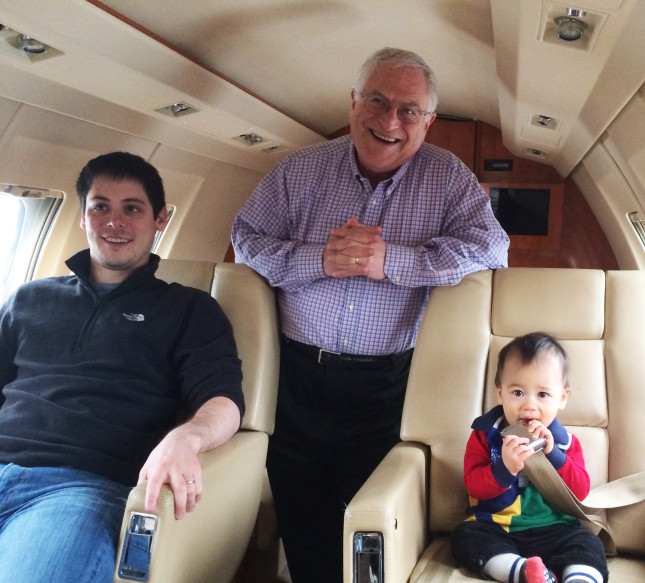Dr. Jerome Tannenbaum hasn’t taken your typical career path. A passionate clinician who previously had vibrant private practices in Dallas and Nashville while also on the faculty of Southwestern Medical School and Vanderbilt University School of Medicine, Tannenbaum transitioned into business and entrepreneurial roles to improve the delivery of care to dialysis patients.
“In 1985, there was only one dialysis provider in the Nashville area,” he says. “The equipment was outdated, the clinic was depressing and very few people asked patients what would make their experience more pleasant.”

Three generations of Tannenbaums.
Tannenbaum and his partners surveyed patients to see what they wanted. “There were issues we never thought of — the loneliness of sitting in a dialysis chair or the lack of windows in dialysis clinics at the time. When we decided to build our own clinics, we added phones at each dialysis station and made sure that there were daylight and windows available. This is ubiquitous in healthcare facility design today, but back then, few people thought about it.”
Patients living in rural communities had long and difficult commutes to dialysis centers and many elected to stay home and not receive care. Tannenbaum chose to build smaller clinics closer to his patients and utilize his electronic medical record (EMR) system to monitor their care from his Nashville office. He pioneered the use of EMR years before federal government mandates and created a software development company that offered PEARL™, one of the first EMR solutions. His latest venture, Sanderling Renal Services-USA, provides renal telemedicine services and dialysis to rural hospitals and communities 24 hours a day. “This helps avoid the transfer of patients from their community to a tertiary facility that may be hours away,” he says. “Being able to immediately initiate emergency dialysis in the patient’s home community can have a huge impact on patient outcomes.”
Reflecting upon his training here, Tannenbaum recalls an intellectually stimulating environment with particularly memorable rounds with Herschel Harter in the Chromalloy American Kidney Center. While conducting experiments on the influence of omega 3 fatty acids on transplant rejection, he admits to arranging for free shipments of gallon jugs of Menhaden oil. “The jugs would arrive from Europe every other week,” he says. “We ended the experiments after six months, but the jugs kept coming, no matter how many times I tried to cancel them. I think it was a year after I left that someone else figured out how to stop the shipments!”
On his career, Tannenbaum notes, “It wasn’t the business of medicine that propelled me to become an entrepreneur. It was a desire to do a better job caring for my patients.”